Develop AI strategy for your organization
Dr. Kavita Ganesan, Founder of Opinosis Analytics
Watch Now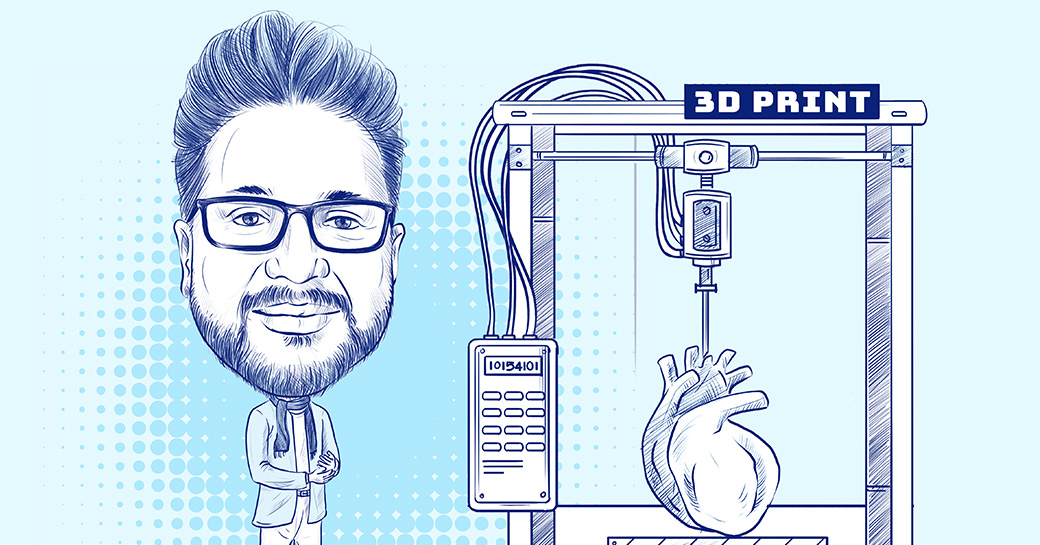
4:05 Minutes The average reading duration of this insightful report.

Explore ten breakthrough technologies poised to redefine human existence, from gene editing and AI to Mars journeys and mind uploading, reshaping our future in unimaginable ways. Dive into this evolution now.
Explore a sneak peek of the full content
This is the most important question that we will have to answer in this century.
In the last few million years, technology (from stone age tools to computers) has been an enabler for us to lead better lives (i.e lifestyles) and have improved life spans (i.e health). While some technologies have made their way into the human body such as pacemakers, metallic joints, hip replacements, knee replacements, cataracts, etc, most of these technologies have been incremental changes that fix us. Download Complete Research
So far, technology has influenced lifestyle, but going forward, technology will shape the definition of a human being.
In the last few years, a suite of new technology breakthroughs are emerging that are going to raise some important questions about how humans will evolve. These technologies are not just enablers but fundamental game changers that will modify what it means to be a human being. They can lead to stronger, faster, more intelligent, more agile and non-terrestrial humans. While some of these technologies exist, some are conceptual.
With gene editing, mind uploading, exoskeletons, general artificial intelligence, non-biological reproduction and martian living, the definition of what it means to be human will be a leading question in this century.

Here we capture 10 such technologies that you will want to keep your eyes on
Credits
Authors@lab45: Arvind Ravishunkar
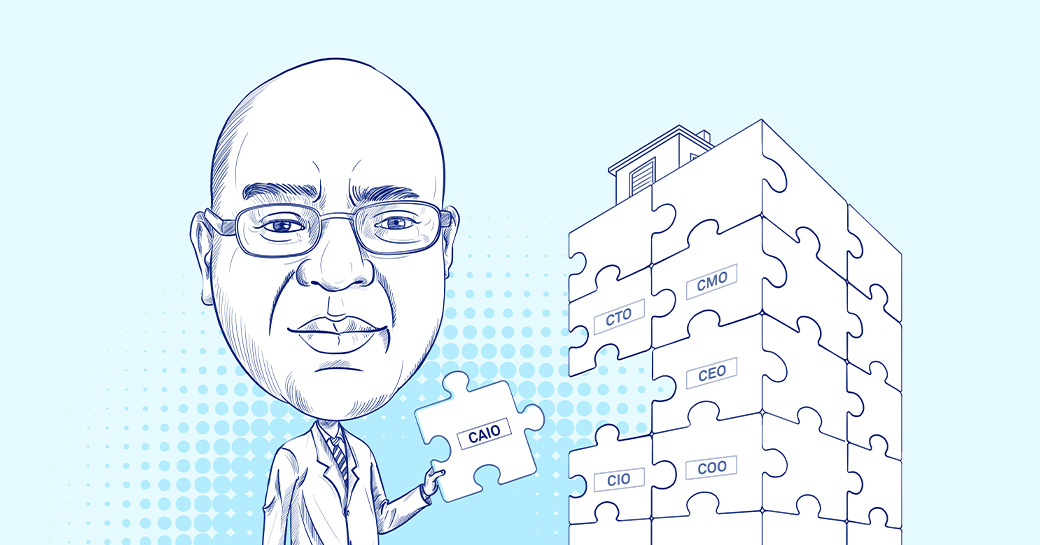
12:23 Minutes The average duration of a captivating reports.

Think your enterprise can master AI alone? Discover why a Chief AI Officer is crucial for aligning tech and strategy, managing risks, and seizing opportunities, or risk falling behind and missing out on innovation. Here's your roadmap.
As enterprises increasingly integrate AI technologies into various departments, the need for a centralized AI strategy becomes crucial. A Chief AI Officer (CAIO) serves as the linchpin for aligning AI initiatives with enterprise goals, ensuring efficient data interoperability and regulatory compliance. The CAIO is responsible for setting the AI vision, building partnerships, and guiding the enterprise through the complexities of AI adoption. Without a CAIO, enterprises risk fragmented AI development, slow decision-making, and increased operational costs. Download Complete Research
The CAIO should possess a blend of technical and business acumen. Key skills include a deep understanding of AI technologies, data infrastructure, and the ability to work cross-functionally. Strategic thinking and strong communication skills are essential for identifying new AI-driven business opportunities. The CAIO should also excel in talent management, as attracting and retaining top AI talent is critical for sustained AI innovation within the enterprise.
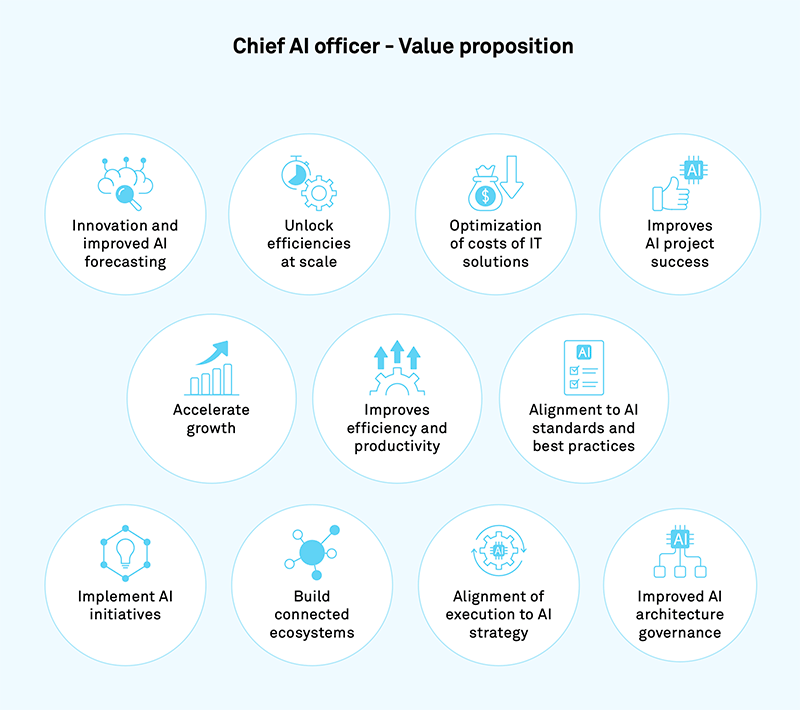
The CAIO is tasked with setting the AI vision, ensuring budget allocation, and overseeing governance across AI projects. They identify new AI opportunities that can enhance productivity, streamline business processes, and open up new markets. The CAIO collaborates with other C-suite executives to align AI strategies with overall business and IT goals. They are also responsible for establishing AI best practices, and standards, and ensuring ethical considerations in AI implementations. Download Complete Research
Effective AI management requires a holistic approach that aligns AI initiatives with business and IT strategies. The CAIO's office should focus on AI governance, ensuring standardization and avoiding monolithic, siloed implementations. A cross-organizational AI Board or Council, comprising key stakeholders, should oversee the AI strategy, thereby ensuring that AI adoption is consistent, efficient, and aligned with enterprise objectives.
AI presents enterprises with a plethora of strategic business opportunities, from enhancing existing products to creating new services. Enterprises with proprietary data and in-house AI skills are best positioned to capitalize on these opportunities. However, risk management frameworks are essential for mitigating potential financial losses, regulatory breaches, and ethical considerations. The CAIO plays a pivotal role in aligning AI initiatives with these strategic opportunities while managing associated risks. Download Complete Research
Credits
Author@lab45: Hussain S Nayak
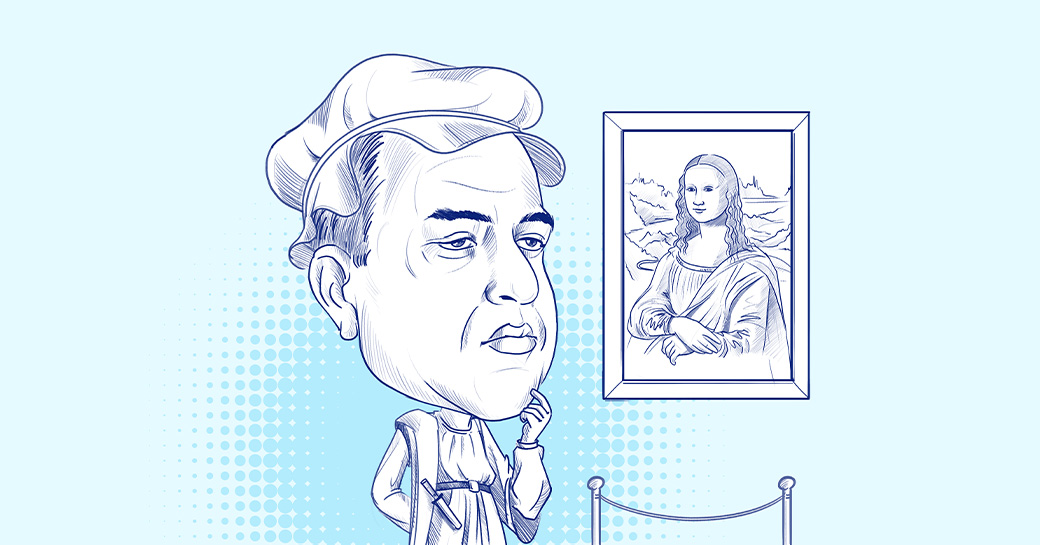
7:12 Minutes The average duration of a captivating reports.

Dive into the intriguing intersection of AI and human creativity, where generative AI reshapes artistic expression and raises critical questions about its impact on our creative evolution and cultural landscapes.
Human progress and evolution have been fundamentally driven by creativity and diverse thought, fostering vibrant cultures and shaping societal values. Creativity, serving as a catalyst for innovation and discovery, allows us to transcend conventional boundaries. However, the integration of Generative AI (Gen-AI) in our lives brings a critical concern: could it enforce creators' biases and limit human originality, steering us towards uniformity in thought and progress? The reliance on Gen-AI potentially risks ceding control over our ideas and thoughts to AI, posing a threat to our societal evolution and the richness of human creativity. Download Complete Research
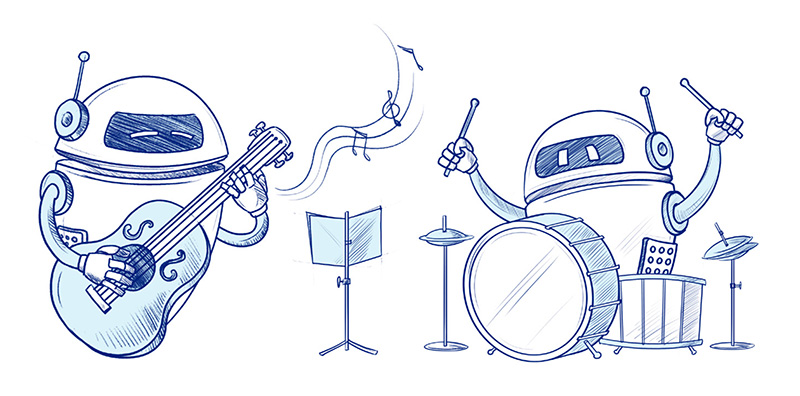
Creativity, a hallmark of human uniqueness, encompasses the generation of inspiring and innovative ideas across various domains like language, music, art, and literature. It's deeply rooted in human intuition, experience, and consciousness, allowing for the creation of meaningful, emotionally resonant works. The emergence of generative AI tools, however, has sparked debate over their impact on human creativity. These AI systems, lacking human emotions and motivations, face limitations in replicating the depth and authenticity of human creative expression. This technological advance prompts a critical inquiry into the future of human societies and creativity in an AI-dominated era, raising concerns about potential shifts towards a one-dimensional societal and creative landscape. Download Complete Research
Music, a profound expression of human emotion and creativity, transcends mere words, connecting deeply with the soul. Historically, musicians have infused their unique experiences into creating emotionally rich and impactful music. With the advent of Generative AI, such as Amper Music, the landscape of music creation is evolving, offering the ability to produce complex, bias-free compositions. However, this technological advancement raises significant concerns. Overreliance on AI in music may lead to a loss of personal artistic voice and emotional depth, potentially resulting in music that, while technically proficient, lacks the soulful essence that defines human creativity. This development in AI challenges our understanding of creativity and its role in human expression, questioning the true nature and future of art in the AI era. Download Complete Research
Generative AI, utilizing Reinforcement Learning with Human Feedback (RLHF), crafts music based on user preferences. This approach, while seemingly innovative, risks diluting the authentic, soul-driven creativity of musicians. Platforms like Spotify, leveraging user data to guide music creation, inadvertently promote a feedback loop that may constrain the multi-dimensional nature of music to a unidimensional, trend-driven form. This trend-centric approach can stifle the unique, deeply emotional, and complex expression inherent in human-composed music. By prioritizing popularity and trends over the intrinsic creative impulse, AI in music creation potentially impedes the evolution of genuine artistic expression and, by extension, cultural and human evolution. The reliance on AI for music creation underscores a crucial debate: the balance between technological innovation and preserving the unfiltered essence of human creativity. Download Complete Research
Generative AI tools are reshaping our approach to self-discovery and creative exploration. Traditional experiences, like exploring a bookstore's diverse offerings, are contrasted with AI-driven online recommendations that often confine users to their past preferences, narrowing their exposure to new ideas and genres. This constrained exploration can potentially limit human creativity and innovation. The rise of AI, while offering democratized access to creative tools, also risks diminishing our imaginative capabilities by fostering dependencies. To harness AI's full potential without undermining human creativity, a balanced, collaborative approach is essential. Combining human intuition, experience, and innovation with AI's capabilities can lead to empowered, enriched creative processes. Emphasizing the need to maintain human creativity at the forefront, the article advocates for using AI as a complementary tool, enhancing rather than replacing human creativity and imagination. Download Complete Research
Credits
Author@lab45: Nagendra Singh
This is your invitation to become an integral part of our Think Tank community. Co-create with us to bring diverse perspectives and enrich our pool of collective wisdom. Your insights could be the spark that ignites transformative conversations.
Learn MoreKey Speakers
Thank you for subscribing!!!
